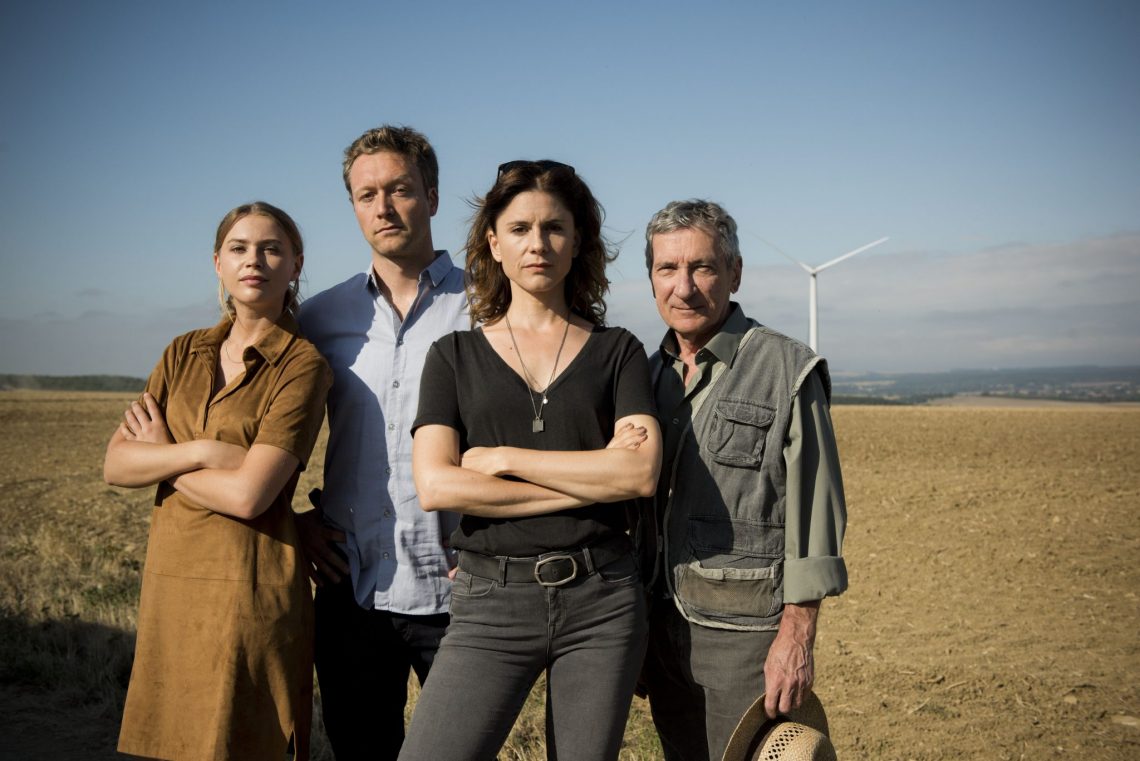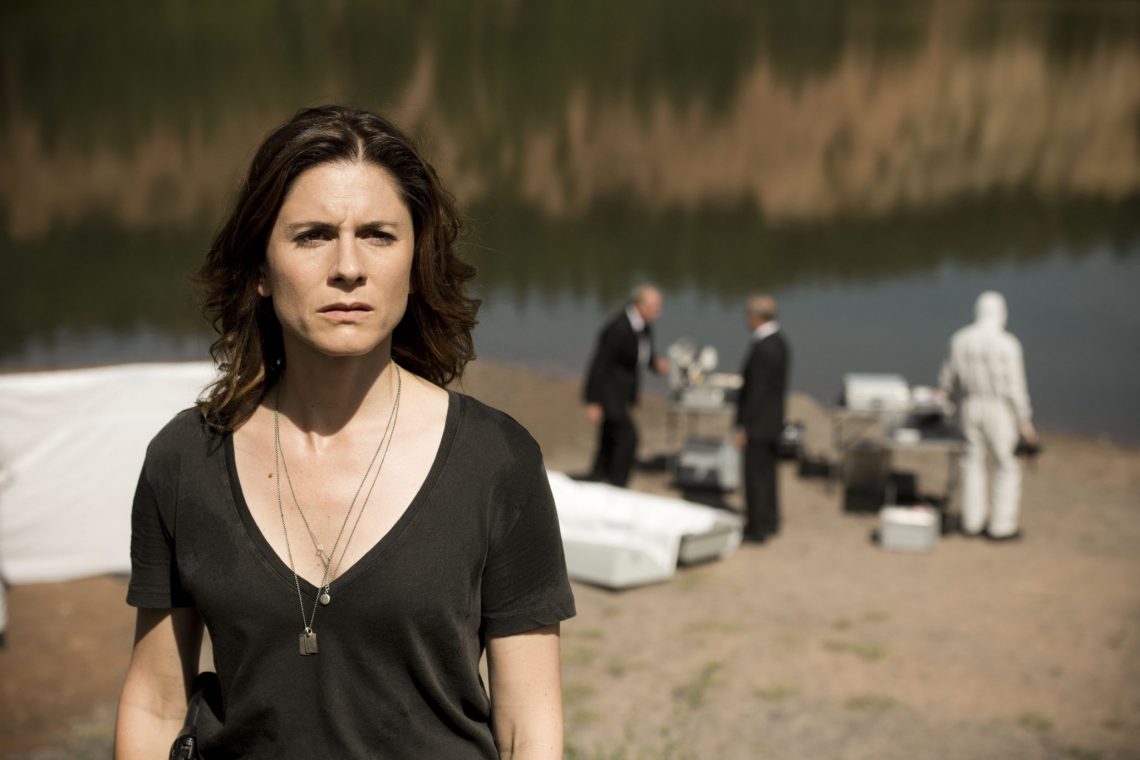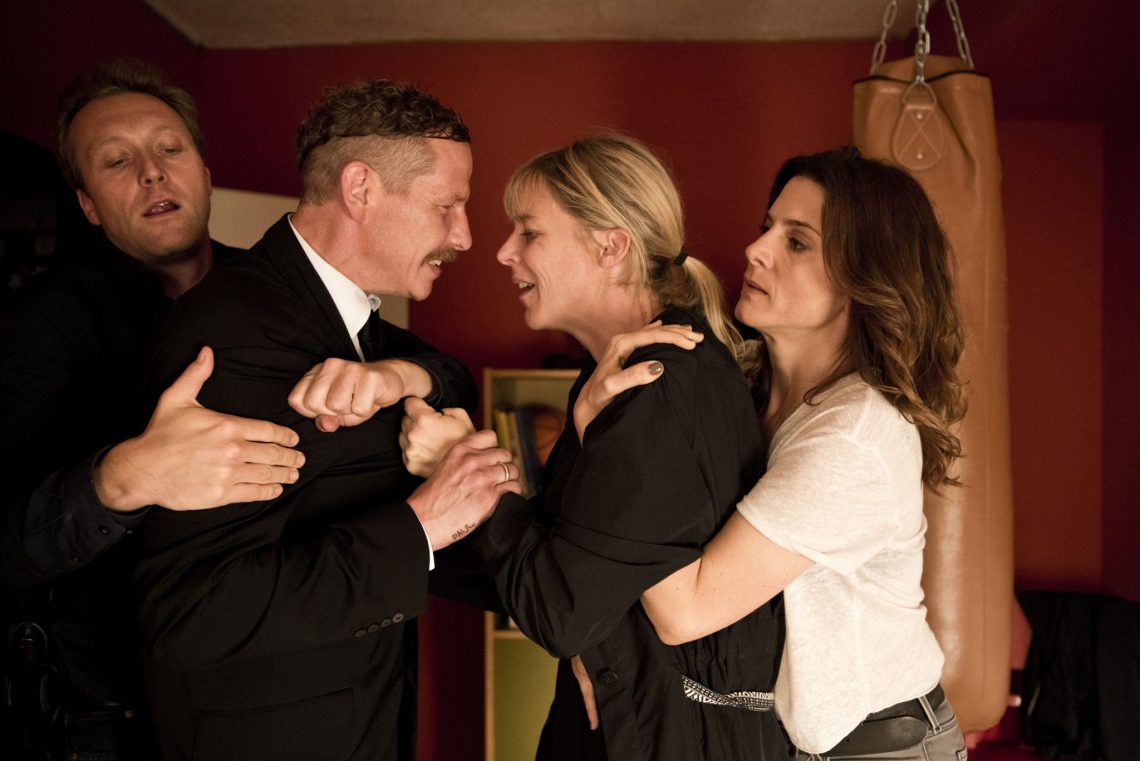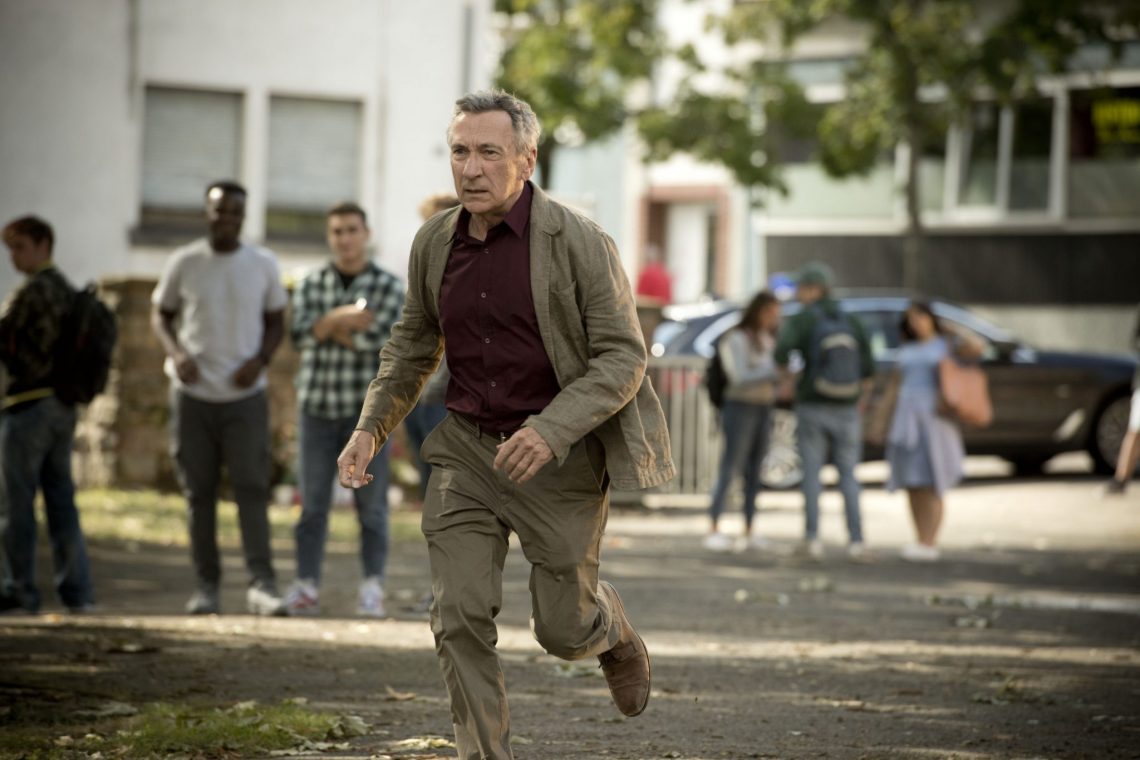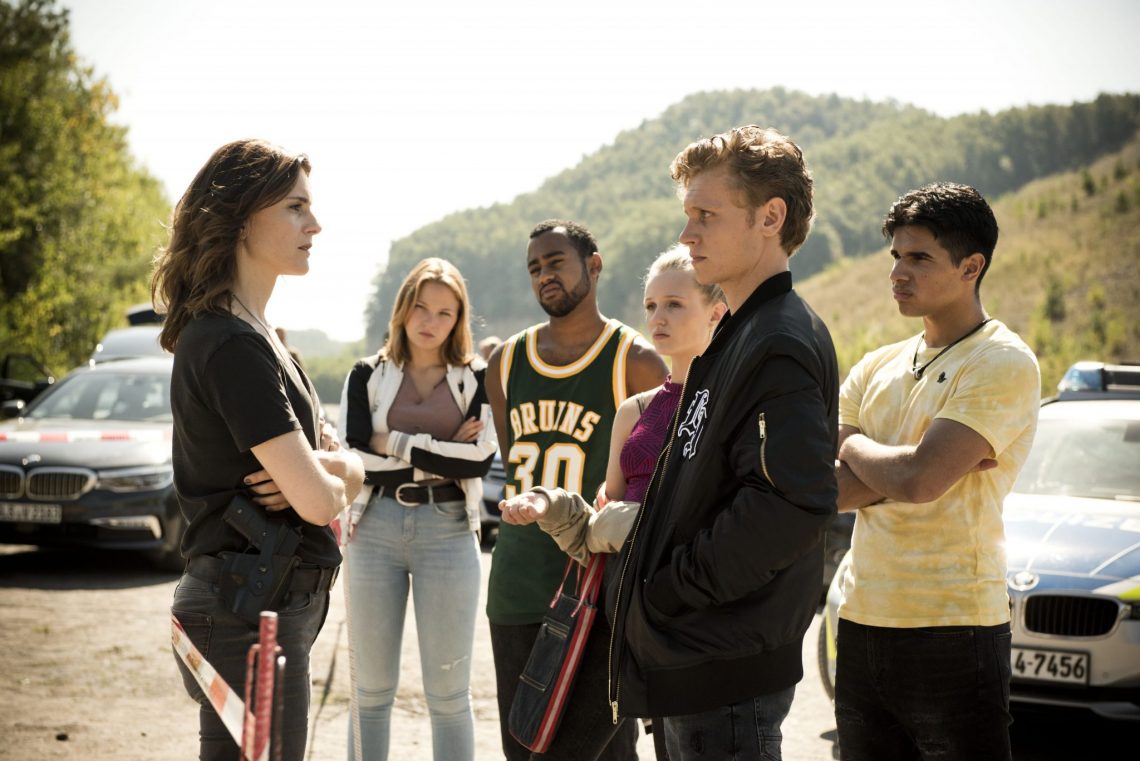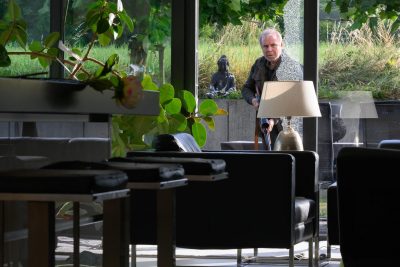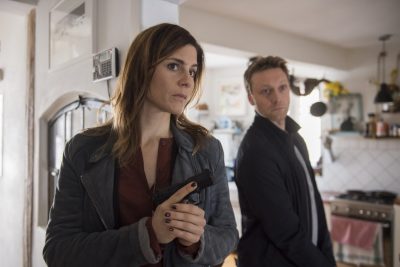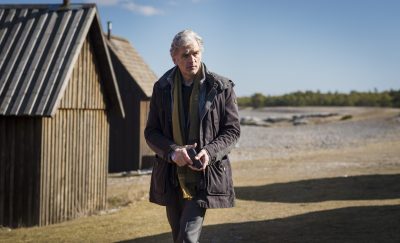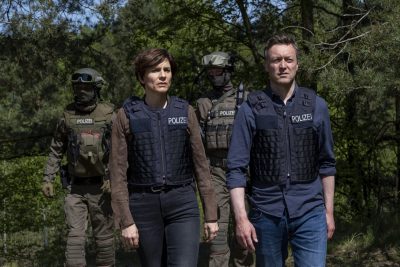- Runtime: 90'
- Viewers: ARTE: 1.05 Mio. / ARTE: 3,6 % MA
- Press release PDF
Saturday, April 4, 2020 at 8:15 p.m. on ZDF.
The third case leads the Saarland detective Judith Mohn (Christina Hecke) to the German-French border region.
A boy is found dead in a lake there and the investigation leads to a socially dicey settlement – Judith Mohn’s birthplace.
When the body of a 16-year-old boy is found in an idyllic lake near an old miners’ settlement, the investigation begins in a village in the German-French border region, the home of Inspector Mohn (Christina Hecke). She turned her back on the settlement and her family more than 20 years ago to become a policewoman, which doesn’t please everyone: people who grow up here don’t actually switch sides to investigate their own people.
A case with a very personal touch for the Saarland inspector and her team. Judith has to face a reunion with her mother (Steffi Kühnert) and her cousin Mischa (Antonio Wannek) and his obscure friend Sharif (Karim Günes) are on the list of suspects. So is a gang of youths operating in the area, who seem to be involved in the equally lucrative and illegal trade in counterfeit branded goods. The secluded lake where the victim was found is a popular meeting place for the youthful group, and the dead man does not seem to be the only secret hidden there this summer.
When Judith Mohn questions the victim’s parents, they react dubiously. The father (Gerdy Zint) seems aggressive, the mother (Bernadette Heerwagen) extremely intimidated – a violent interaction within the family cannot be ruled out. What could this fact have to do with the cause of death. And why does the attempt to solve the case seem to escalate the quarrel between the couple and equally in the youth gang? Judith Mohn is forced to deal with the shadows of her past.
Short interview with leading actress Christina Hecke
The series is called “In Truth”: Is the name program, and if so, to what extent?
The name is not just a program – it’s an obligation. At least for Judith! As far as the series itself is concerned, the concept of truth is also the course and standard here. The cases are based on real life. Truth in terms of the emotional and plot background of the characters is the overriding principle. We do not see telling crime stories as an entertainment program but as a reflection of reality. All the more it is our endeavor to come as close as possible to comparable or actual circumstances without exposing them. And above all – to tell as non-judgmental as possible. It is rather the view behind the events and thus often also a carrier of understanding – or at least a background provider. What the individual viewer nevertheless makes of it is up to each person. It’s just like in REAL LIFE!
What do you particularly like about Chief Inspector Judith Mohn?
I like her unrestrained will to look behind the scenes. Not to be distracted by the superficial and yet to take everything as it is. Awake and direct. She is not a judge, but a revealer. She has a strong urge to bring life into the true light. And also the willingness to go to the limits, to fail and not to judge herself as much as possible – that’s what I love about her. The closeness, vulnerability, femininity. That’s what I find so powerful.
With the hardness of the cases that are told, does Judith Mohn sometimes reach her psychological and physical limits?
Judith Mohn is not a superhuman – of course she also reaches her limits. Like the viewers, I’m curious to see in which situations Judith will have to assert herself in the future and how she will master these limits and grow from them. Her unconditional search for the truth will guide her!
Judith Mohn is no loner. She is supported in her investigations by Inspector Freddy Breyer, Kripo trainee Lisa and ex-Criminal Chief Inspector Zerner. How has the team developed over time?
The power of eye level plays an increasingly important role. Even if there is a distribution of competencies in terms of content, that doesn’t mean that everyone can’t have the leading impulse at the appropriate moment. Judith’s sensitive and intuitive quality is inspiration and challenge for colleagues in equal measure. The lightness and quick-wittedness of Lisa, the thoughtful and police-competent drive of Freddy – and the mentor-like strength of Zerner forge a constellation around Judith that could not be more complex.
“In Truth” is one of the most popular German fictional programs on ARTE among French viewers? What do you think is the reason for that?
From my point of view, it’s mainly because we work together as equals. That fits in with the French principle: egalite, fraternite, liberte. The authenticity of this series and that of Judith Mohn are certainly also vehicles for identification potential, as is the femininity of the investigating commissioner. It’s very French! And thus fully accessible. Approachability is not typically German.
-
Regie
Buch
Kamera
Szenenbild
Kostüm
Musik
Casting
Film Editor
Produktionsleitung
Herstellungsleitung
Produzent
Produktion
Redaktion
